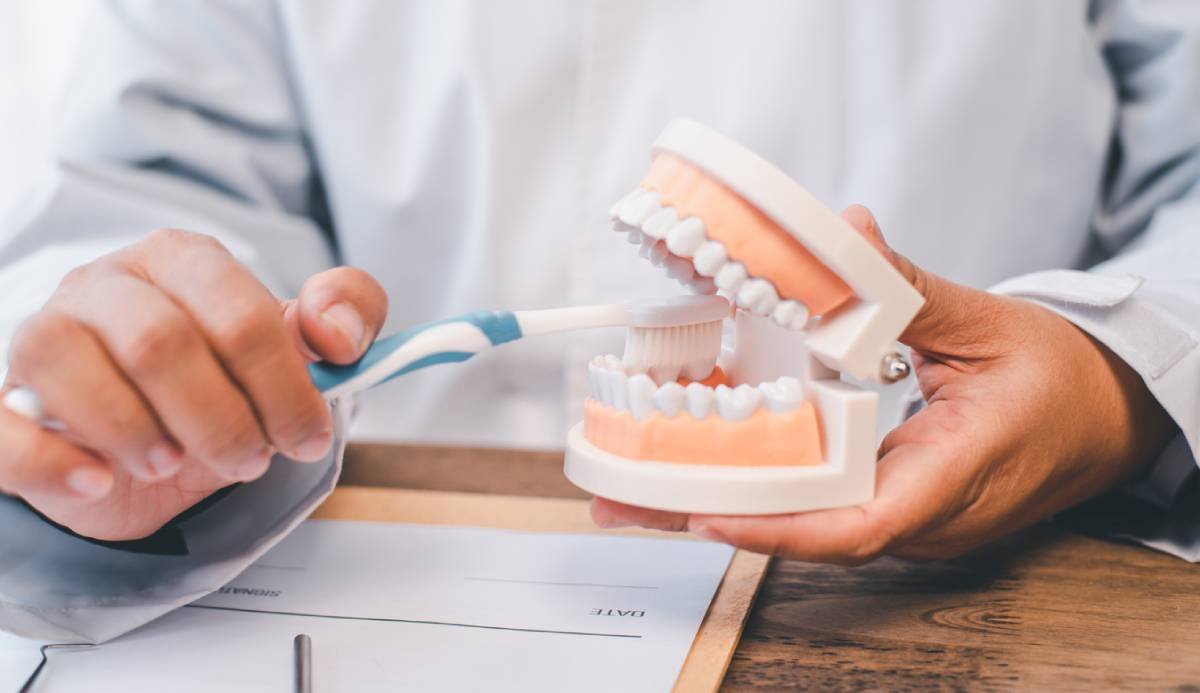Dentures are a popular and effective tooth replacement option. This is especially true if you have a number of missing teeth that need to be replaced. Getting new dentures can be a major change in your life. While they are a great tooth replacement option, it can take some time to adjust to the new set of teeth. This is because you will need to get more comfortable eating and speaking with them. This is completely normal and only lasts a short period when you begin treatment. Consider the following 4 tips for adjusting to dentures so you feel comfortable with them faster.
4 Tips for Adjusting to Dentures
The adjustment period for dentures can last a few weeks. During this time, there are effective ways to manage the transition process.
Plan Your Meals:
During the first few weeks after getting your dentures, it can be really helpful to plan out all of your meals. Your meal plan should include soft foods as they can help make the transition much smoother. Create a meal plan that is nutritious and filled with soft foods that won’t be too difficult to eat. This can help prepare you for harder foods as you transition after the first few weeks. Some of the soft foods that help new denture wearers include mashed potatoes, cooked vegetables, scrambled eggs, pudding, smoothies, and protein shakes.
Practice Makes Perfect:
When it comes to speaking with dentures, practice is key. The adjustment process can be expedited if you regularly practice speaking with your dentures. You can start by reading books or magazines aloud to get comfortable with speaking. Some dentists also suggest singing with your dentures as it can get your mouth used to making a variety of different sounds. The adjustment period shouldn’t last long if you practice daily.
Address Issues Right Away:
Sore spots are normal in the beginning as your mouth is adjusting to a foreign object. However, these will go away as your mouth gets used to your dentures. The first couple of weeks are often the most difficult when it comes to adjustment. If you notice any sores, address them right away. This includes regular salt water rinses as it can help minimize discomfort and reduce inflammation. If the sores do not go away after the first few weeks, or get progressively worse, contact your dentist as there may be issues with the fit of your dentures.
Experiment With Adhesives:
Adhesives are effective in keeping your dentures in place. There are a number of different kinds of adhesives so it’s helpful to experiment and find the one that you really like. Start by talking with your dentist about their recommendations and branch out if you don’t find one you really like.
Custom Dentures
For those who have multiple missing teeth, dentures can be a great replacement option. Custom dentures are created with your unique needs in mind. This results in a perfect fit so your dentures look and function just like your natural teeth. The first step in moving forward with denture treatment is setting up a consultation. A dentist can determine if the treatment is right for you. The team at Rapids Dental is skilled in restorative dentistry services, including custom dentures.
If you already have dentures and are concerned that they don’t fit properly, the team at Rapids Dental can help. While there is an adjustment period after getting new dentures, it shouldn’t last forever. On average, most denture wearers are fully transitioned within a month. If you still have mouth sores, trouble speaking, or difficulty chewing, it’s important to contact a dentist. The team at Rapids Dental can assess the fit of your dentures and determine the issue. Contact the top dental office today to schedule an appointment!

